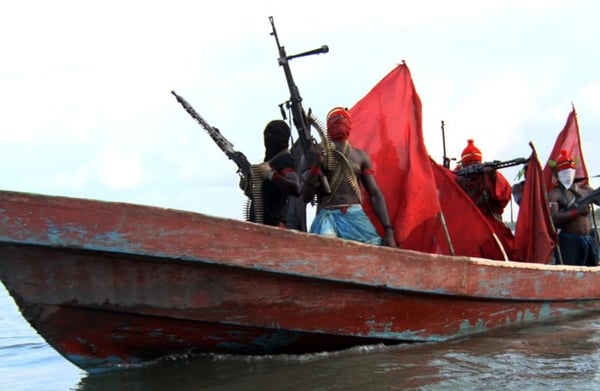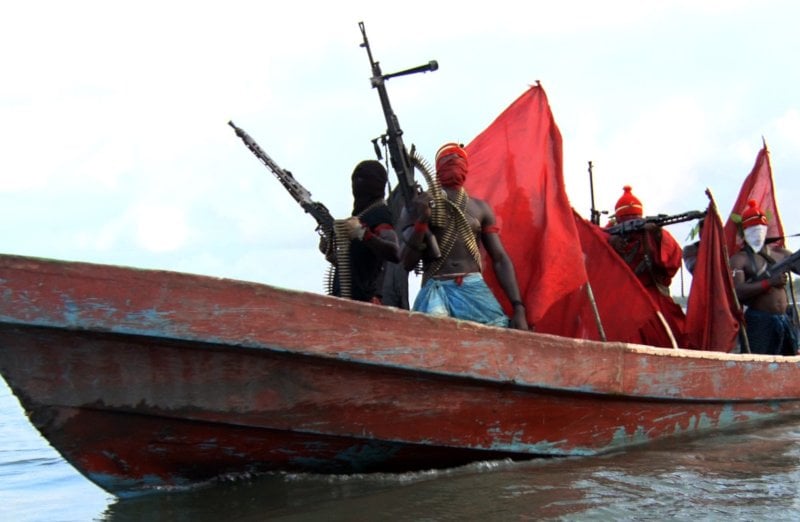Increased threat of violent piracy attacks soars as oil prices tank impacting vessels travelling through the Gulf of Guinea.

International shipping leaders demand more naval presence in West Africa as gangs of pirate’s head hundreds of miles to sea for a chance at a hostage takeover of entire crews forcing shipping companies to pay ransoms.
These current and constant piracy incidents in West Africa mirror the Somali-style piracy crisis from a decade ago.
With the lack of policing within the Gulf of Guinea maritime zone “the risk-reward ratio is very heavily in favour of the pirates” says director of the International Maritime Bureau.
The hijacking was one of 16 attacks or attempted attacks this year alone in the Gulf of Guinea, according to Dryad Global, a British maritime security consultancy. Last year, 130 sailors were kidnapped in the region, a figure that accounted for 95 per cent of global kidnappings at sea.
Most pirates are part of criminal gangs situated in Nigeria’s Delta region to take advantage of the Delta’s oil wealth, since the drop in oil price in 2014 kidnapping for ransom has been more profitable for the pirates.
The gangs run makeshift "hostage camps" on islets in the Delta region's dense forests, many of which are accessible only by boat and hard to navigate for outsiders. "It really is the perfect place to be a pirate, much better than Somalia," said Munro Anderson, a partner at Dryad.

"Effective military intervention needs to be deployed" says Maersk's head of marine standards. However, the region of West Africa lack navies capable of this.
Nigeria has spent £150 million on counter-piracy vessels, but critics say this is not enough and an international anti-piracy force should be assembled.
"Where Somalia was a failed state, there was a blank canvas to build a security framework, but there would be significant sovereignty issues about Nigeria accepting help in territorial waters," said Mr Anderson.
"Nigeria takes its pride seriously, and the day it accepts an international force is the day it accepts that its own security approaches have not been adequate."
Source: Telegraph






